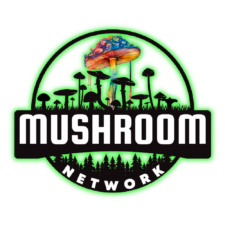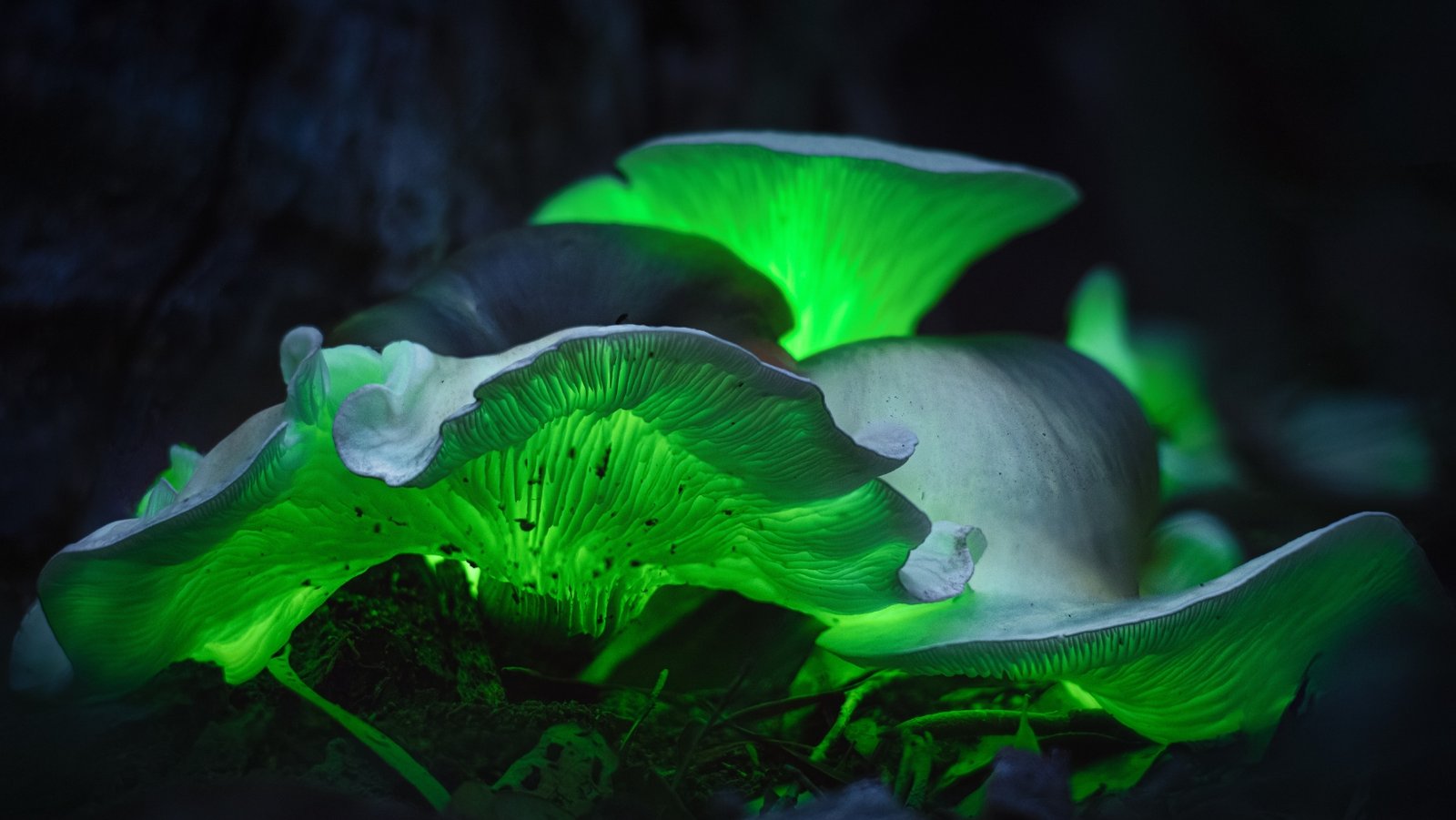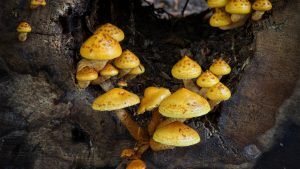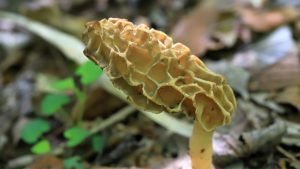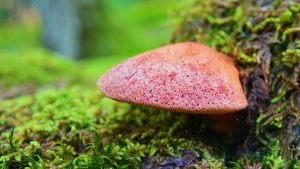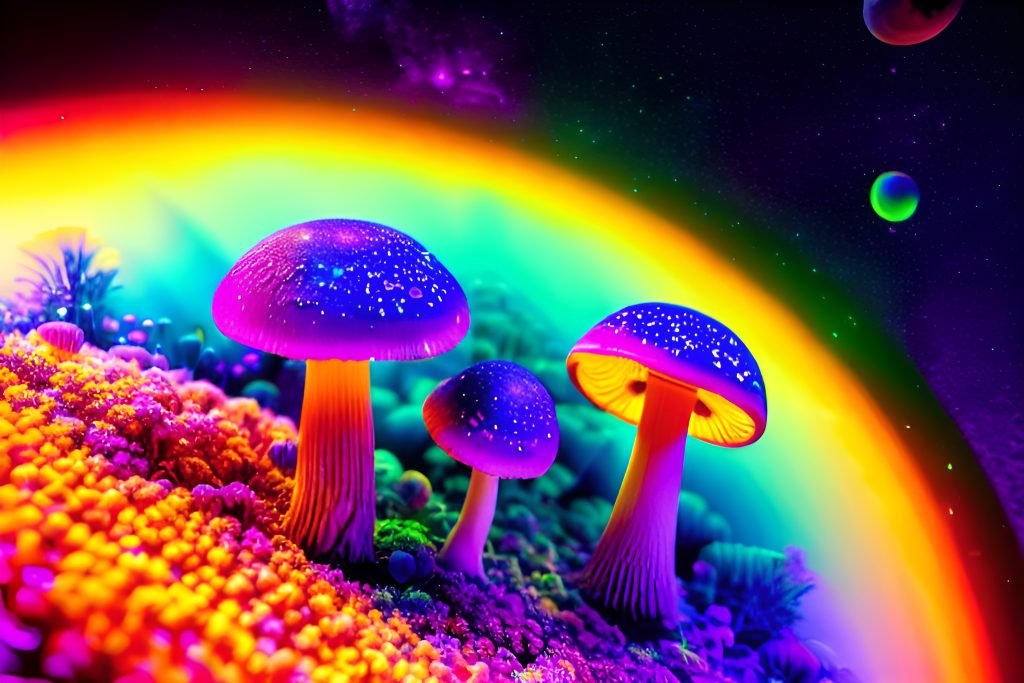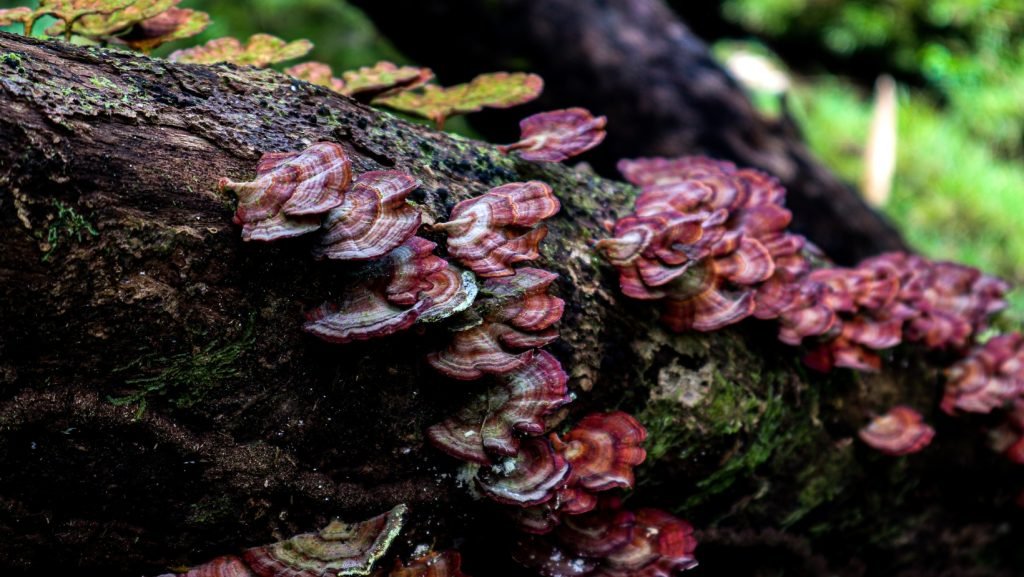Nature has always held fascinating secrets, and the realm of mycology is no exception. Among the diverse and enchanting world of fungi, there exists a group of organisms that possess a truly captivating trait: bioluminescence. Bioluminescent fungi, with their ethereal glow, have sparked the curiosity and imagination of scientists and nature enthusiasts alike. In this article, we embark on a journey to explore the mesmerizing phenomenon of bioluminescence in fungi, delving into its origins, ecological significance, and the magic it brings to our natural surroundings.
Unveiling the Glow:
Bioluminescence, the ability of organisms to produce light, is a rare occurrence in the natural world. Yet, over 70 species of fungi, spanning various genera and families, have been discovered to possess this remarkable trait. When conditions are right, these fungi emit an otherworldly luminescence, casting an eerie green or blue glow in the darkness of their forest habitats. Some notable bioluminescent fungi include the Panellus stipticus, Mycena chlorophos, and Armillaria mellea.
The Chemistry Behind the Light: The luminosity exhibited by bioluminescent fungi stems from a chemical reaction within their cells. It involves the interaction of two key components: luciferin and luciferase. Luciferin, a light-emitting pigment, undergoes oxidation catalyzed by the enzyme luciferase. This reaction releases energy in the form of light, producing the captivating bioluminescent display we observe.
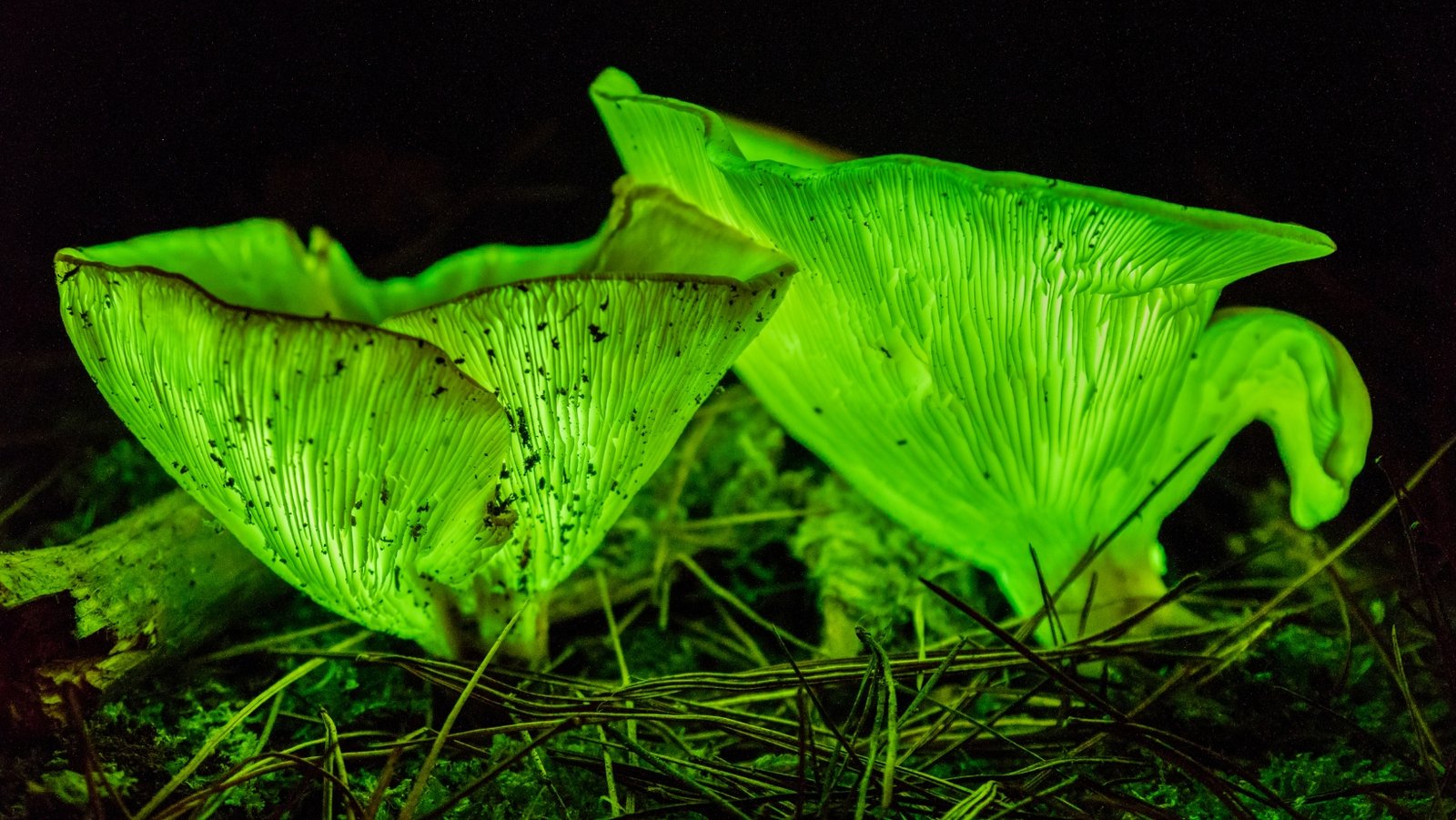
Ecological Significance: While the allure of bioluminescent fungi lies in their mesmerizing glow, scientists have been intrigued by the ecological role it serves. Research suggests that the bioluminescence may serve multiple purposes for these fungi. One proposed hypothesis is that the glow attracts insects and other invertebrates. These organisms are then enticed to interact with the fungus, aiding in spore dispersal. Additionally, the light emitted by bioluminescent fungi may act as a deterrent for potential predators, signaling that the fungus contains toxins or undesirable compounds.
Fungi and the Night – An Evolutionary Adaptation: The ability to produce light in the darkness of the forest is a unique evolutionary adaptation possessed by bioluminescent fungi. In ecosystems where sunlight is limited or absent, bioluminescence allows these fungi to communicate, attract mates, and disperse their spores efficiently. This adaptation has likely evolved over millions of years, enabling these fungi to thrive in their specific ecological niches and contribute to the intricate balance of forest ecosystems.
Exploring the Mystery: While scientists have made significant progress in unraveling the mysteries of bioluminescent fungi, much remains to be discovered. The precise mechanisms and triggers that regulate the production of light are still not fully understood. Additionally, new species of bioluminescent fungi continue to be discovered, adding to the diversity and wonder of the mycological world. The study of bioluminescent fungi provides an ongoing opportunity for scientific exploration and fosters a deeper appreciation for the marvels of nature.
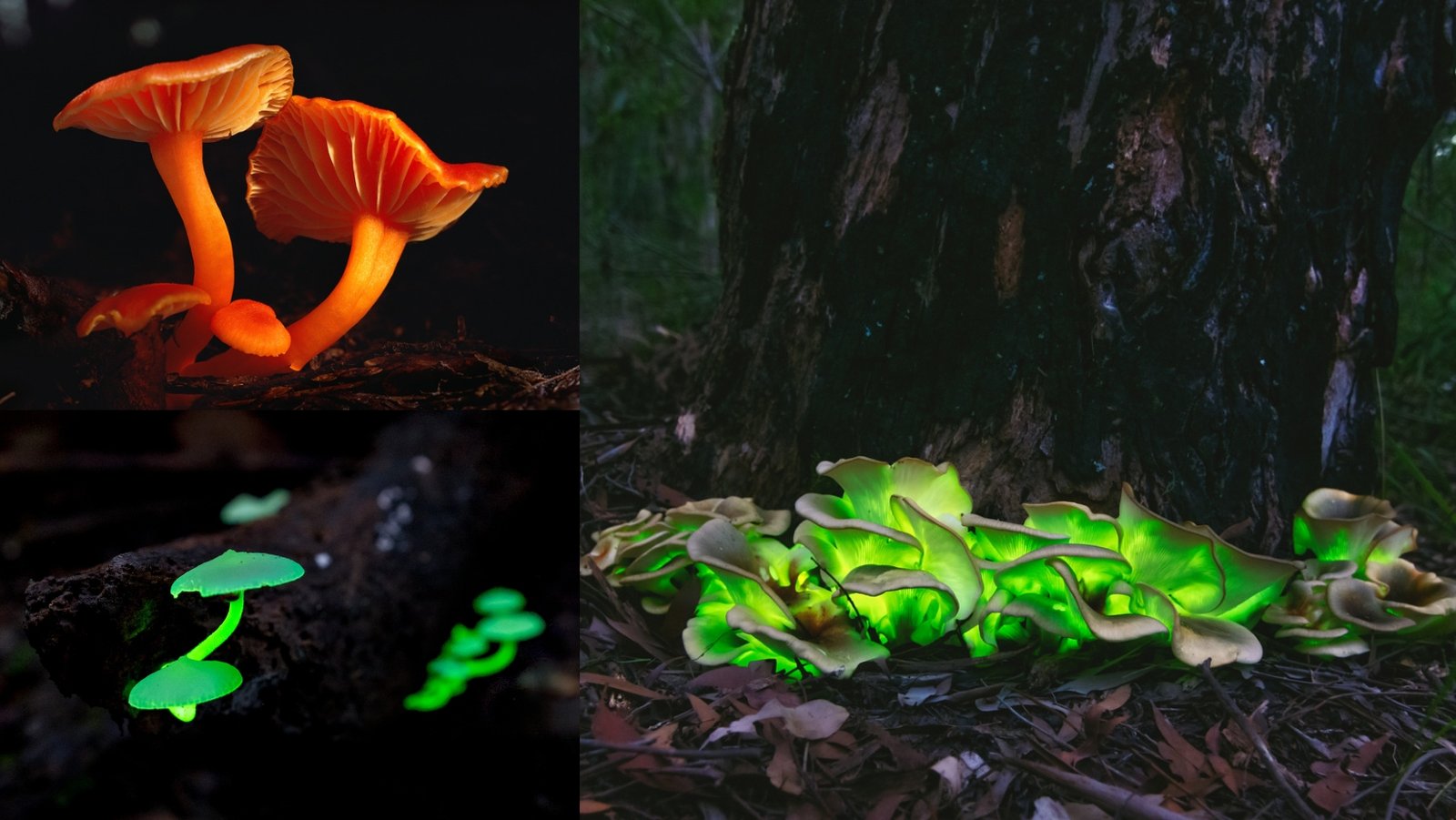
The realm of mycology never ceases to amaze, and bioluminescent fungi stand as a testament to the captivating wonders found in nature. The luminous glow emitted by these fungi, created through a fascinating chemical reaction, adds a touch of magic to our forests and fuels our curiosity. Understanding the ecological significance and evolutionary adaptations of bioluminescent fungi broadens our perspective on the intricacies of the natural world. As we continue to explore the mysteries surrounding these enchanting organisms, let us cherish the luminosity they bring and allow ourselves to be captivated by the beauty of the fungal kingdo
Recommended Reads:
Exploring the Culinary & Health Wonders of Pholiota Adiposa
Welcome to the extraordinary world of Pholiota Adiposa, an underrated culinary gem and health enhancer,...
Read More...Gourmet Galaxies: A Culinary Tour of Edible Mushrooms
About This Article: Embark on a flavor-filled voyage with ‘Gourmet Galaxies,’ exploring the culinary wonders...
Read More...Pasta With Chicken and Mushrooms
Introduction: Embark on a culinary journey with this Pasta with Chicken and Mushrooms dish, where...
Read More...Beefsteak Mushroom (Fistulina Hepatica)
Welcome, fungal enthusiasts and curious minds, to an exploration of Fistulina Hepatica, commonly known as...
Read More...Whoa there, Spore Sport! 🍄 Looks like you’re not logged in yet. Don’t you know what you’re missing? MYCO-CREDITS! Imagine all the fungal fun you could have. It’s like finding a Morel in May and not picking it. Tragic, right? Log In or Become a Myco-Patron and start racking up those credits. It’s more rewarding than finding a mushroom in your backyard! 🌟🏡
